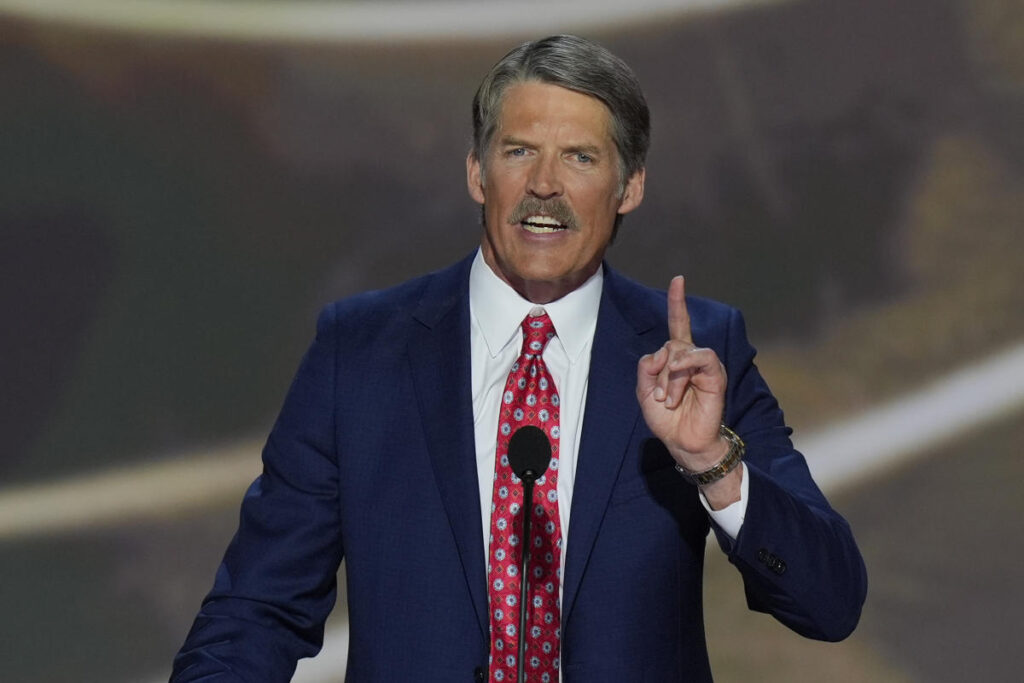In the heated campaign for a U.S. Senate seat in Wisconsin, Republican candidate Eric Hovde has found himself under scrutiny for his lack of familiarity with the critical U.S. farm bill, which is particularly influential in the state known as America’s Dairyland. During a recent debate against incumbent Senator Tammy Baldwin, Hovde openly admitted, “I’m not an expert on the farm bill because I’m not in the U.S. Senate,” a statement that has been used against him in Baldwin’s campaign ads. Baldwin, who recently secured the endorsement of the Wisconsin Farm Bureau—the first Democrat in over two decades to do so—has leveraged Hovde’s comments to reinforce her commitment to farmers in Wisconsin and suggest that he does not prioritize their needs.
The balance of power in the Senate is at stake in this election, making the competition particularly fierce. Democrats are defending more seats than Republicans, with Baldwin and Hovde both acknowledging that the race is exceedingly close. Hovde’s remarks about the farm bill arose in discussions about agriculture’s significance to Wisconsin’s economy, especially in light of Baldwin’s new endorsements and her proactive engagement with local farming concerns. Responding to Baldwin’s critique, Hovde has insisted that his comments were taken out of context, emphasizing that while he may not know every detail of the farm bill, he believes the legislation has strayed from its original purpose of supporting small farmers.
Instead of backing down, Hovde has doubled down on his perspective that the farm bill prioritizes corporate interests over direct assistance to farmers. After the debate, he stated that only about 20% to 25% of the farm bill is actually geared towards supporting small farms, with much of the funding allocated to large corporations and nutrition programs—elements he views as having diluted the bill’s intent. Hovde’s criticism of the debate’s focus points has led him to question the relevance of discussing the farm bill, suggesting that issues like inflation, immigration, and crime should take higher precedence in their conversations.
Baldwin countered Hovde’s assertions by underscoring the necessity of the farm bill in providing stability and predictability for farmers in Wisconsin. She argued that the bill not only helps farmers directly but also supports nutrition programs essential for purchasing local agricultural products. The tension between the candidates highlights the broader debate surrounding agricultural policy in the U.S. and the need for legislation that adequately represents the interests of diverse stakeholders, including farmers and corporate entities.
Hovde’s recent comments on various media platforms express his dissatisfaction with the focus on the farm bill in the campaign, reflecting his belief that he should not be expected to have an in-depth understanding of legislation he is not currently involved in. He characterized the inquiry about the farm bill as an attempt to distract from other pressing issues affecting Wisconsin constituents, emphasizing his platform’s focus on giving farmers a greater share in legislation designed to support their livelihoods.
The current farm bill, last passed in 2018, is set to expire soon, and the political maneuvering surrounding its reauthorization remains pivotal. The extension granted by Congress indicates the complexities inherent in reaching a consensus on agricultural policy. As Wisconsin voters approach the ballot box, the candidates’ positions on the farm bill will likely continue to serve as a focal point of judgment, reflecting broader concerns about agricultural funding and support in a state so integral to the U.S. farming industry. Ultimately, the outcome of this election may set a precedent for how future agricultural policies are approached on both a state and national level.

